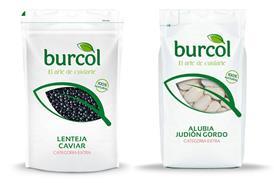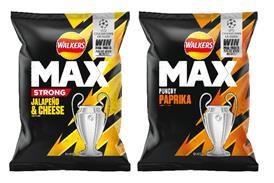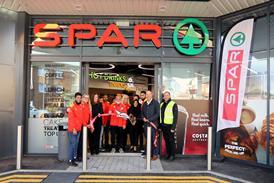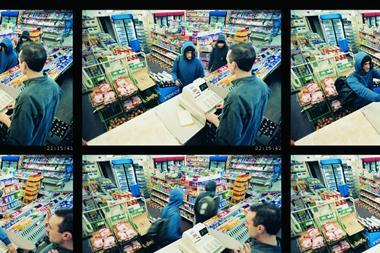As your supervisor's key turns in the lock, the lights come on. Not all of them; just enough for the early morning team to set up the store for the day.
The air conditioning silently adjusts itself, bringing the store up or down to the perfect temperature.
Five minutes before opening, the door on your temperature controlled drinks room rises, revealing its perfectly chilled contents. The night blinds on the dairy chillers roll up, and the soft drinks display cases, which have throttled back through the night, fire themselves up to bring their stock down to sales temperature. The exterior lights come on full power if it's dark, or perfectly phased to complement the available light if the sun's out.
With one minute to go, the rest of the lights come on, as do the display screens and audio systems.
Congratulations. You've just opened your store without wasting a single spark of energy, and carrying on at the same optimised usage throughout the day, you'll see an enormous difference in your power bill at the end of the month.
For those of you whose staff's knowledge of energy management amounts to 'Turn everything on' in the morning and (if you're lucky) 'Turn everything off' at night, it might come as a surprise to learn that several of the energy-saving measures mentioned above are already in place in James Hall & Co's Spar store in Winsford, Cheshire, and those that aren't are not beyond the capabilities of the nifty bit of kit that monitors the store's power consumption.
Hall's energy guru Frank Frayling has been testing the Data Manager from controls manufacturer Resource Data Management (RDM) in the store since it opened 18 months ago, and as with all good experiments, he explains, there's a model to compare its success against.
"We've got another store about 15 miles away in Tarporley which is about the same size and age, but doesn't have the energy management system, so we can compare like for like," he says. "In a typical month last year, Tarporley's total power consumption was 34,691kWh; here it was 27,375."
That's a 25% cut in energy costs, which in this case translates to bottom-line savings of about £10,000 a year.
The 3,000sq ft Winsford store has all the usual c-store power-hungry equipment, plus a rather splendid customer-access cold room for its beers and white wines. These potential energy-guzzlers are continuously monitored by the wireless RDM system.
"We can view what's happening on any piece of equipment in real time," says Frayling, "so we know if it's functioning at its most efficient."
If the store manager gets an over-temperature alarm, it's a simple job to see if it was a momentary lift or a long-term failure, and that in turn avoids shelling out £200 for a maintenance engineer to come in and tell you that, in fact, there's nothing wrong with your kit.
Just as handy, the monitoring gives you a 12-month record of temperature readings; that's very useful indeed for proving due diligence if ever the environmental health officer comes sniffing around your store room.
Best of all for those retailers who like the idea of running their stores via a laptop from some Spanish poolside bar, the monitoring can be done over the internet. In theory, this means that if someone leaves the cold store's door open, causing the temperature to rise, the manager could get a phone call from HQ warning him to go and shut it.
"We've taken the issue of energy management out of the hands of the staff on the shopfloor," says Frayling. "It's one less thing they have to worry about, so they are free to do what they do best, which is look after the customers."
Beyond monitoring, we get into the area of energy control, and here's where the system earns its money. Soft drinks don't need to be held at sales temperature while you're closed, but turning your chillers off isn't the answer, as re-chilling from room temperature will cost you a fortune. In Winsford's case the chillers automatically reduce to the optimum part-load overnight.
And if you've got night blinds on your dairy chillers, you'll save yourself a lot of wasted energy.
Similarly, the beer room has a shutter which comes down at night and keeps the cold in, so its refrigeration system can shut down completely for four hours. An air curtain keeps the cool air in the room when the door's open.
Hall's is rolling the RDM system out to its company-owned stores, and recommending it to the 350-odd Spar independents it serves. The all-singing, all-dancing set-up at Winsford cost about £10,000, and although it paid for itself in a year, that's quite a capital investment.
Fortunately, the Data Manager is a modular system, and the basic package which tracks chiller temperatures comes in at about £2,000; a small addition to the cost of installing new cabinets, and a worthy investment in return for the savings it will bring.
The air conditioning silently adjusts itself, bringing the store up or down to the perfect temperature.
Five minutes before opening, the door on your temperature controlled drinks room rises, revealing its perfectly chilled contents. The night blinds on the dairy chillers roll up, and the soft drinks display cases, which have throttled back through the night, fire themselves up to bring their stock down to sales temperature. The exterior lights come on full power if it's dark, or perfectly phased to complement the available light if the sun's out.
With one minute to go, the rest of the lights come on, as do the display screens and audio systems.
Congratulations. You've just opened your store without wasting a single spark of energy, and carrying on at the same optimised usage throughout the day, you'll see an enormous difference in your power bill at the end of the month.
For those of you whose staff's knowledge of energy management amounts to 'Turn everything on' in the morning and (if you're lucky) 'Turn everything off' at night, it might come as a surprise to learn that several of the energy-saving measures mentioned above are already in place in James Hall & Co's Spar store in Winsford, Cheshire, and those that aren't are not beyond the capabilities of the nifty bit of kit that monitors the store's power consumption.
Hall's energy guru Frank Frayling has been testing the Data Manager from controls manufacturer Resource Data Management (RDM) in the store since it opened 18 months ago, and as with all good experiments, he explains, there's a model to compare its success against.
"We've got another store about 15 miles away in Tarporley which is about the same size and age, but doesn't have the energy management system, so we can compare like for like," he says. "In a typical month last year, Tarporley's total power consumption was 34,691kWh; here it was 27,375."
That's a 25% cut in energy costs, which in this case translates to bottom-line savings of about £10,000 a year.
The 3,000sq ft Winsford store has all the usual c-store power-hungry equipment, plus a rather splendid customer-access cold room for its beers and white wines. These potential energy-guzzlers are continuously monitored by the wireless RDM system.
"We can view what's happening on any piece of equipment in real time," says Frayling, "so we know if it's functioning at its most efficient."
If the store manager gets an over-temperature alarm, it's a simple job to see if it was a momentary lift or a long-term failure, and that in turn avoids shelling out £200 for a maintenance engineer to come in and tell you that, in fact, there's nothing wrong with your kit.
Just as handy, the monitoring gives you a 12-month record of temperature readings; that's very useful indeed for proving due diligence if ever the environmental health officer comes sniffing around your store room.
Best of all for those retailers who like the idea of running their stores via a laptop from some Spanish poolside bar, the monitoring can be done over the internet. In theory, this means that if someone leaves the cold store's door open, causing the temperature to rise, the manager could get a phone call from HQ warning him to go and shut it.
"We've taken the issue of energy management out of the hands of the staff on the shopfloor," says Frayling. "It's one less thing they have to worry about, so they are free to do what they do best, which is look after the customers."
Beyond monitoring, we get into the area of energy control, and here's where the system earns its money. Soft drinks don't need to be held at sales temperature while you're closed, but turning your chillers off isn't the answer, as re-chilling from room temperature will cost you a fortune. In Winsford's case the chillers automatically reduce to the optimum part-load overnight.
And if you've got night blinds on your dairy chillers, you'll save yourself a lot of wasted energy.
Similarly, the beer room has a shutter which comes down at night and keeps the cold in, so its refrigeration system can shut down completely for four hours. An air curtain keeps the cool air in the room when the door's open.
Hall's is rolling the RDM system out to its company-owned stores, and recommending it to the 350-odd Spar independents it serves. The all-singing, all-dancing set-up at Winsford cost about £10,000, and although it paid for itself in a year, that's quite a capital investment.
Fortunately, the Data Manager is a modular system, and the basic package which tracks chiller temperatures comes in at about £2,000; a small addition to the cost of installing new cabinets, and a worthy investment in return for the savings it will bring.























No comments yet